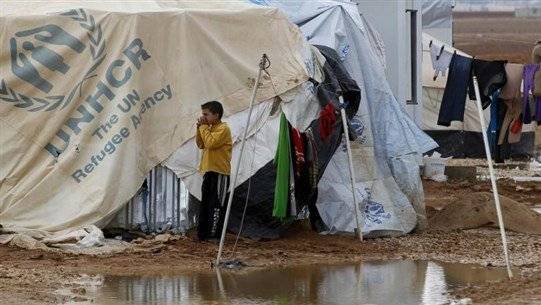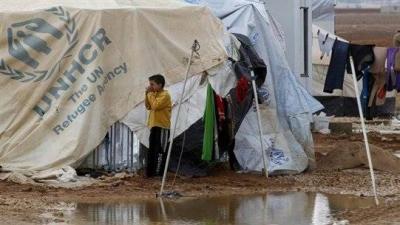After eleven years, Lebanon has found it impossible, in light of the changing international interests, to bear the costs of the chaos created by the presence of Syrian refugees on its territory. Through the Ministry of Foreign Affairs and Emigrants and the Ministry of Social Affairs, Lebanon has mobilized the relevant organizations and donor countries, warning against the potential explosion of this social issue and requesting that it be handled by or through the state. Recently, the Syrian refugee file has been placed back on the correct path, and the government has approached international donor agencies about the necessity of instituting controls and curbing the rampant disorder among organizations and beneficiaries at the expense of the state and its institutions. A proposal paper has been prepared as a new cooperation framework to address the urgent refugee issue.
Since the beginning of the crisis in Syria, the state has had a passive role, merely observing the flow of refugees and the accompanying aid from organizations and donor countries outside official frameworks. Many organizations concerned with their affairs have emerged, and the number of refugees has increased without any official statistics to indicate their numbers or define their places of residence. The negative engagement of the UN High Commissioner for Refugees (UNHCR) in Lebanon with the relevant institutions and ministries has caused a coolness in relations between both parties. The Ministry of Foreign Affairs expressed its displeasure at the absence of coordination on the issue, alerting through Foreign Minister Abdullah Bou Habib since the refugee conference in Brussels about the impossibility of maintaining the refugee situation as it is in Lebanon.
Days ago, Bou Habib and Minister of Social Affairs Hector Hajjar summoned Ayaki Ito, the UNHCR Representative in Lebanon, to discuss a different mechanism for cooperation regarding the Syrian refugees residing in Lebanese territory. During the meeting, Bou Habib candidly addressed the UNHCR head about Lebanon's grievances regarding international dealings with refugees, outlining the current refugee crisis that has surpassed Lebanon's capacity to handle.
The international acknowledgment of keeping refugees in Lebanon has provoked the relevant ministries to direct their steps towards concerned organizations to convey a message to donor countries stating that Lebanon will no longer remain silent regarding the refugee crisis. Sources from the meeting mentioned that the goal was to develop cooperation with the UNHCR and to establish a new framework for handling the refugee file. The government, through the Ministry of Foreign Affairs, has decided to take control of the refugee file and engage with it similarly to how other Arab countries manage their refugee affairs.
It is neither logical nor acceptable for the refugee issue to remain open to chaos while Lebanon bears their burdens, having welcomed over one and a half million Syrian refugees in addition to half a million Palestinians on its territory—amounting to nearly half of Lebanon's population. It becomes impossible to link the refugee issue to a political solution in Syria while the world is preoccupied with other concerns and the situation in Syria no longer takes precedence.
This reality requires the government, through the relevant ministries, to act and take responsibility for this issue to avoid an imminent social explosion. This is occurring while Lebanon is suffering from a financial collapse, with rising tensions between refugees and Lebanese citizens competing for a livelihood in a country where a majority of its people live below the poverty line. Additionally, there has been an increase in crime rates and security incidents caused by refugees in various areas of Lebanon, coinciding with a rise in the number of illegal boats departing by sea due to competition with refugees.
Addressing the issue this way is not aimed at stirring tensions but rather reflects the reality that international organizations and donor entities overlook, as they insist on refusing the refugees' return to their homeland without a political solution that is not looming in the horizon. During the meeting, the Ministries of Foreign Affairs and Social Affairs reaffirmed that the Lebanese Constitution rejects the principle of resettlement, and there is unanimous agreement on rejecting any aspect of keeping refugees in Lebanon and the difficulty of continuing the refugee file in its current chaotic state. Lebanon demanded a new logic for engagement and cooperation founded on principles applied by international organizations, emphasizing the importance of transparency and good governance, which are cornerstones of the operational principles of international and regional organizations.
Lebanon informed the stakeholders that it is about to conduct a review and audit regarding the expenditure of donor funds allocated for refugees, given the concerns over their disbursement methods. An independent and specialized international company will conduct the audit, and Lebanon wishes to understand how assistance is distributed and which NGOs benefit from it, ensuring they adhere to legal frameworks. The document also demanded fair compensation for its institutions similar to what is done in Jordan, where the Refugee Commission provides the state with refugee records and assists them through an agreed-upon cooperation mechanism.
In its new approach with the UNHCR, Lebanon emphasizes that many refugees in Lebanon are not wanted or pursued, and their stay is linked to receiving aid from international bodies. Therefore, Lebanon should identify registered refugees receiving aid in US dollars while regularly traveling to Syria to take appropriate legal action against them. All these points, among others, have been included by the Ministry of Foreign Affairs in a proposals paper addressing the refugee issue to the UNHCR for study before Lebanon receives a response regarding them and acts accordingly.
Meeting sources concluded by emphasizing the positive atmosphere that prevailed during the discussions, noting that the two ministers experienced international understanding of the reality and both sides agreed on the importance of enhancing coordination between the UNHCR and Lebanese authorities, with the intention of holding subsequent meetings aimed at implementing practical and tangible steps.




